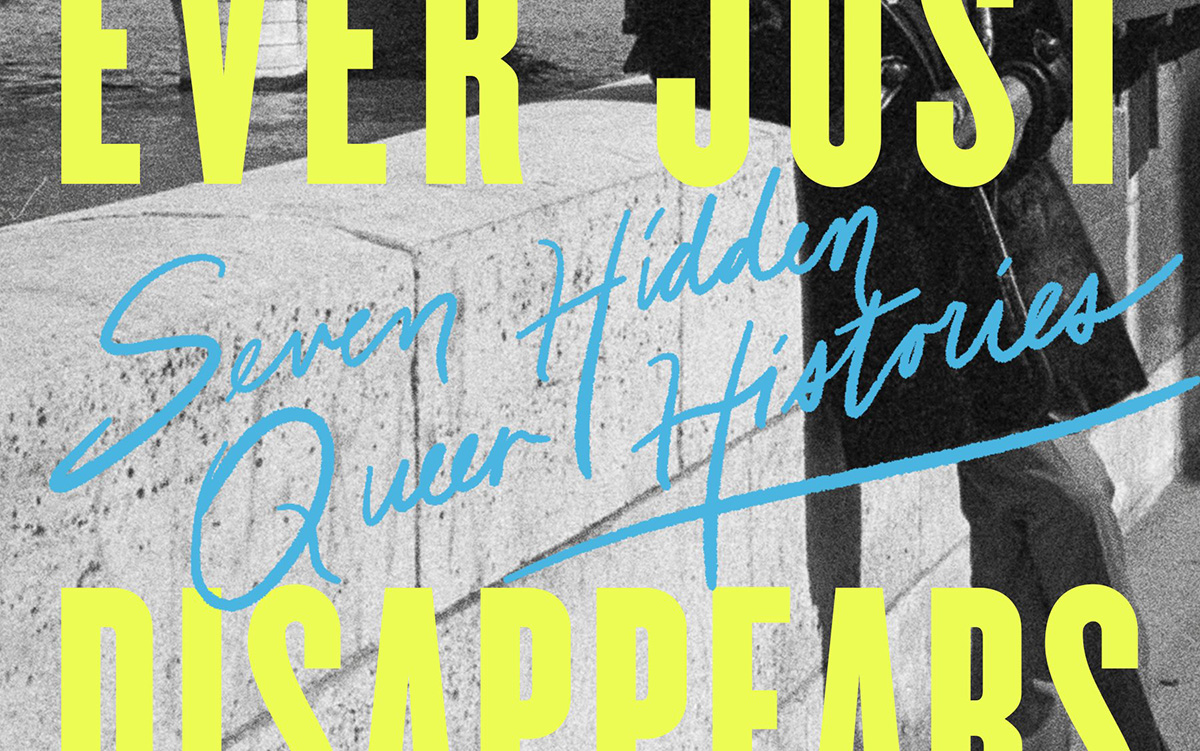Books
Geena Davis kicked ass onscreen long before she did in real life
Iconic actress revisits her ‘Polite’ life in new memoir

‘Dying of Politeness: A Memoir’
By Geena Davis
c.2022, Harper One
$28.99/288 pages
Years ago, a colleague videotaped me as I apologized for bumping into a desk. “I’m sorry,” I said to this inanimate object, “I hope I didn’t hurt your feelings.”
If you’re terminally polite, love kick-ass movies and worship bad-asses, you’ll lap up “Dying of Politeness: A Memoir” by badass, feminist, Academy-Award-winning actor and activist Geena Davis.
In the memoir (Davis’s debut as an author), Davis, 66, tells entertaining, sometimes moving, stories about her wide-ranging life: from her childhood (her parents were more polite than Emily Post ever dreamt of) to her acting career to finishing in 24th place in archery in the 2000 Summer Olympics trials.
Davis, a queer and feminist icon, has been in many movies. Her awards include an Oscar for best supporting actress for her portrayal of dog trainer Muriel Prichett in “The Accidental Tourist,” the adaptation of the Anne Tyler novel of the same name. Davis watched her boyfriend (Jeff Goldblum) turn into an insect in “The Fly” and played Barbara in the comedy-horror picture “Beetlejuice.”
Davis is loved by LGBTQ folk for her work in two 1990s classics.
In 1991, she was Thelma (Susan Sarandon was Louise) in “Thelma and Louise,” the classic film that made many women cheer and a lot of men squirm.
Just a year later, Davis was Dottie in the movie that’s still a fave of hetero and queer girls and women — “A League of Their Own.” Unlike the series with the same name recently released by Amazon Prime, the film has no explicitly queer characters. But with Madonna (Mae) and Rosie O’Donnell (Doris), the picture has a fab queer quotient.
You’d think, after watching Davis as Thelma and Dottie, that the Oscar-winning actor leapt from her mother’s womb as a badass.
But it’s clear from the get-go that it took more than a minute for Davis to emerge as her badass self. Davis could easily have titled not only the first chapter of her memoir, but the entire book, “My Journey to Badassery.”
“I kicked ass onscreen way before I did so in real life,” Davis writes.
But, “Dying of Politeness” is a more than apt title for the memoir. Her parents were loving, but polite to the point of absurdity.
They insisted that Davis say “no thank you, I’m not thirsty” “even if someone was handing me an already poured glass of ice water,” Davis writes.
One of Davis’s childhood memories was of the time her 99-year-old great-uncle drove her and her family to his house. The relative kept veering into the oncoming “if blessedly empty,” traffic lane, she recalls. Rather than saying anything, “my parents simply moved me to the spot between them on the back seat,” Davis writes, “thinking, I presume, that when the inevitable head-on collision occurred, I’d be killed a little less in the middle.”
The humor in this anecdote of a childhood brush with death is typical of the wit sprinkled throughout “Dying of Politeness.”
Davis, who grew up in Wareham, Mass., decided at age 3 that she wanted to be in the movies. After studying acting at Boston University, Davis left college and moved to New York.
Davis may have been as she writes, “a cripplingly polite New Englander,” but she wasn’t lacking in chutzpah.
In New York, Davis worked as a Lord and Taylor sales clerk. On a dare, she joined a group of mannequins in a café scene in the department store window. Soon, people lined up to watch her perform in street theater.
Davis got her first movie role in “Tootsie” after Sidney Pollack saw her pictures in the Victoria’s Secret catalogue. Dustin Hoffman, starring in the movie, mentored her. He told her not to sleep with her co-stars.
The memoir is more than entertaining. Davis writes of sexual harassment, her effort to create inclusion in Hollywood by founding the Geena Davis Institute on Gender in Media and how her dad cared for her mom when she had dementia.
It’s hard to think of a timelier book than “Dying of Politeness” in our current political climate. Badassery is needed now more than ever.
The Blade may receive commissions from qualifying purchases made via this post.
Books
New book offers observations on race, beauty, love
‘How to Live Free in a Dangerous World’ is a journey of discovery

‘How to Live Free in a Dangerous World: A Decolonial Memoir’
By Shayla Lawson
c.2024, Tiny Reparations Books
$29/320 pages
Do you really need three pairs of shoes?
The answer is probably yes: you can’t dance in hikers, you can’t shop in stilettos, you can’t hike in clogs. So what else do you overpack on this long-awaited trip? Extra shorts, extra tees, you can’t have enough things to wear. And in the new book “How to Live Free in a Dangerous World” by Shayla Lawson, you’ll need to bring your curiosity.

Minneapolis has always been one of their favorite cities, perhaps because Shayla Lawson was at one of Prince’s first concerts. They weren’t born yet; they were there in their mother’s womb and it was the first of many concerts.
In all their travels, Lawson has noticed that “being a Black American” has its benefits. People in other countries seem to hold Black Americans in higher esteem than do people in America. Still, there’s racism – for instance, their husband’s family celebrates Christmas in blackface.
Yes, Lawson was married to a Dutch man they met in Harlem. “Not Haarlem,” Lawson is quick to point out, and after the wedding, they became a housewife, learned the language of their husband, and fell in love with his grandmother. Alas, he cheated on them and the marriage didn’t last. He gave them a dog, which loved them more than the man ever did.
They’ve been to Spain, and saw a tagline in which a dark-skinned Earth Mother was created. Said Lawson, “I find it ironic, to be ordained a deity when it’s been a … journey to be treated like a person.”
They’ve fallen in love with “middle-American drag: it’s the glitteriest because our mothers are the prettiest.” They changed their pronouns after a struggle “to define my identity,” pointing out that in many languages, pronouns are “genderless.” They looked upon Frida Kahlo in Mexico, and thought about their own disability. And they wish you a good trip, wherever you’re going.
“No matter where you are,” says Lawson, “may you always be certain who you are. And when you are, get everything you deserve.”
Crack open the front cover of “How to Live Free in a Dangerous World” and you might wonder what the heck you just got yourself into. The first chapter is artsy, painted with watercolors, and difficult to peg. Stick around, though. It gets better.
Past that opening, author Shayna Lawson takes readers on a not-so-little trip, both world-wide and with observant eyes – although it seems, at times, that the former is secondary to that which Lawson sees. Readers won’t mind that so much; the observations on race, beauty, love, the attitudes of others toward America, and finding one’s best life are really what takes the wheel in this memoir anyhow. Reading this book, therefore, is not so much a vacation as it is a journey of discovery and joy.
Just be willing to keep reading, that’s all you need to know to get the most out of this book. Stick around and “How to Live Free in a Dangerous World” is what to pack.
The Blade may receive commissions from qualifying purchases made via this post.
Books
Story of paralysis and survival features queer characters
‘Unswerving: A Novel’ opens your eyes and makes you think

‘Unswerving: A Novel’
By Barbara Ridley
c.2024, University of Wisconsin Press
$19.95 / 227 pages
It happened in a heartbeat.
A split-second, a half a breath, that’s all it took. It was so quick, so sharp-edged that you can almost draw a line between before and after, between then and now. Will anything ever be the same again? Perhaps, but maybe not. As in the new book “Unswerving” by Barbara Ridley, things change, and so might you.

She could remember lines, hypnotizing yellow ones spaced on a road, and her partner, Les, asleep in the seat beside her. It was all so hazy. Everything Tave Greenwich could recall before she woke up in a hospital bed felt like a dream.
It was as though she’d lost a month of her life.
“Life,” if you even wanted to call it that, which she didn’t. Tave’s hands resembled claws bent at the wrist. Before the accident, she was a talented softball catcher but now she could barely get her arms to raise above her shoulders. She could hear her stomach gurgle, but she couldn’t feel it. Paralyzed from the chest down, Tave had to have help with even the most basic care.
She was told that she could learn some skills again, if she worked hard. She was told that she’d leave rehab some day soon. What nobody told her was how Les, Leslie, her partner, girlfriend, love, was doing after the accident.
Physical therapist Beth Farringdon was reminded time and again not to get over-involved with her patients, but she saw something in Tave that she couldn’t ignore. Beth was on the board of directors of a group that sponsored sporting events for disabled athletes; she knew people who could serve as role models for Tave, and she knew that all this could ease Tave’s adjustment into her new life. It was probably not entirely in her job description, but Beth couldn’t stop thinking of ways to help Tave who, at 23, was practically a baby.
She could, for instance, take Tave on outings or help find Les – even though it made Beth’s own girlfriend, Katy, jealous.
So, here’s a little something to know before you start reading “Unswerving”: author Barbara Ridley is a former nurse-practitioner who used to care for patients with spinal cord injuries. That should give readers a comfortable sense of satisfaction, knowing that her experiences give this novel an authenticity that feels right and rings true, no faking.
But that’s not the only appeal of this book: while there are a few minor things that might have readers shaking their heads (HIPAA, anyone?), Ridley’s characters are mostly lifelike and mostly likable. Even the nasties are well done and the mysterious character that’s there-not-there boosts the appeal. Put everyone together, twist a little bit to the left, give them some plotlines that can’t ruined by early guessing, and you’ve got a quick-read novel that you can enjoy and feel good about sharing.
And share you will because this is a book that may also open a few eyes and make readers think. Start “Unswerving” and you’ll (heart) it.
The Blade may receive commissions from qualifying purchases made via this post.
Books
Examining importance of queer places in history of arts and culture
‘Nothing Ever Just Disappears’ shines with grace and lyrical prose

‘Nothing Ever Just Disappears: Seven Hidden Queer Histories’
By Diarmuid Hester
c.2024, Pegasus Books
$29.95/358 pages
Go to your spot.
Where that is comes to mind immediately: a palatial home with soaring windows, or a humble cabin in a glen, a ramshackle treehouse, a window seat, a coffeehouse table, or just a bed with a special blanket. It’s the place where your mind unspools and creativity surges, where you relax, process, and think. It’s the spot where, as in the new book “Nothing Ever Just Disappears” by Diarmuid Hester, you belong.

Clinging “to a spit of land on the south-east coast of England” is Prospect Cottage, where artist and filmmaker Derek Jarman lived until he died of AIDS in 1994. It’s a simple four-room place, but it was important to him. Not long ago, Hester visited Prospect Cottage to “examine the importance of queer places in the history of arts and culture.”
So many “queer spaces” are disappearing. Still, we can talk about those that aren’t.
In his classic book, “Maurice,” writer E.M. Forster imagined the lives of two men who loved one another but could never be together, and their romantic meeting near a second-floor window. The novel, when finished, “proved too radical even for Forster himself.” He didn’t “allow” its publication until after he was dead.
“Patriarchal power,” says Hester, largely controlled who was able to occupy certain spots in London at the turn of the last century. Still, “queer suffragettes” there managed to leave their mark: women like Vera Holme, chauffeur to suffragette leader Emmeline Pankhurst; writer Virginia Woolf; newspaperwoman Edith Craig, and others who “made enormous contributions to the cause.”
Josephine Baker grew up in poverty, learning to dance to keep warm, but she had Paris, the city that “made her into a star.” Artist and “transgender icon” Claude Cahun loved Jersey, the place where she worked to “show just how much gender is masquerade.” Writer James Baldwin felt most at home in a small town in France. B-filmmaker Jack Smith embraced New York – and vice versa. And on a personal journey, Hester mourns his friend, artist Kevin Killian, who lived and died in his beloved San Francisco.
Juxtaposing place and person, “Nothing Ever Just Disappears” features an interesting way of presenting the idea that both are intertwined deeper than it may seem at first glance. The point is made with grace and lyrical prose, in a storyteller’s manner that offers back story and history as author Diarmuid Hester bemoans the loss of “queer spaces.” This is really a lovely, meaningful book – though readers may argue the points made as they pass through the places included here. Landscapes change with history all the time; don’t modern “queer spaces” count?
That’s a fair question to ask, one that could bring these “hidden” histories full-circle: We often preserve important monuments from history. In memorializing the actions of the queer artists who’ve worked for the future, the places that inspired them are worth enshrining, too.
Reading this book may be the most relaxing, soothing thing you’ll do this month. Try “Nothing Ever Just Disappears” because it really hits the spot.
The Blade may receive commissions from qualifying purchases made via this post.
-

 State Department2 days ago
State Department2 days agoState Department releases annual human rights report
-

 Maryland4 days ago
Maryland4 days agoJoe Vogel campaign holds ‘Big Gay Canvass Kickoff’
-

 Autos5 days ago
Autos5 days agoSport haulers: Jeep Grand Cherokee, Mercedes GLE-Class
-

 Politics3 days ago
Politics3 days agoSmithsonian staff concerned about future of LGBTQ programming amid GOP scrutiny










